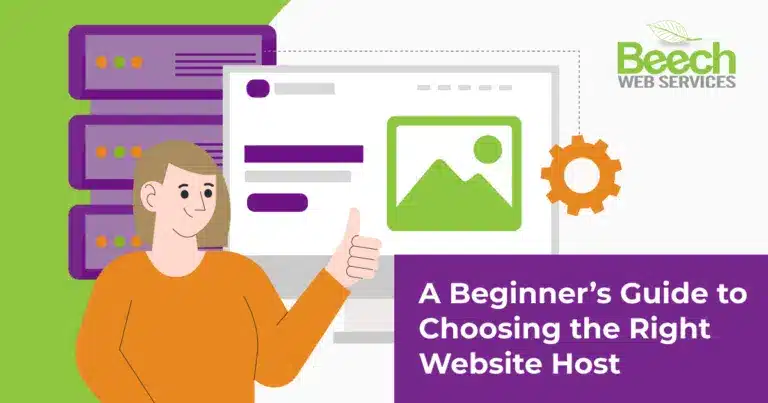What is a website hosting provider?
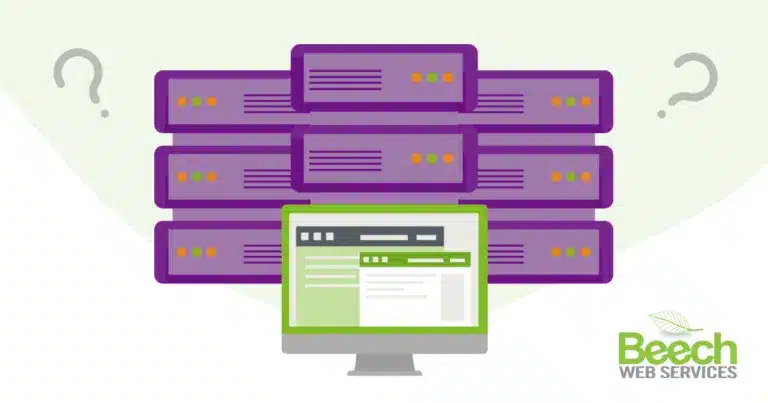
Website hosting is the physical space where website files are stored. By linking the domain name e.g. beechwebservices.co.uk via DNS records, people can access our website on their devices, wherever they are in the world. We could build a site from scratch and put all the work into designing, building and perfecting it, but no one would see that work live on the internet if it wasn’t for hosting providers.
Hosting allows us to offer products and services online to our target audience, making us accessible across the internet to many people. When choosing a website host, it’s important to find a provider best suited to our business’ unique requirements.
This latest blog post will give insights into the list of areas we’d recommend considering before choosing a website host. We’ll even throw in some useful tips at the end!
Why choosing the right website host matters
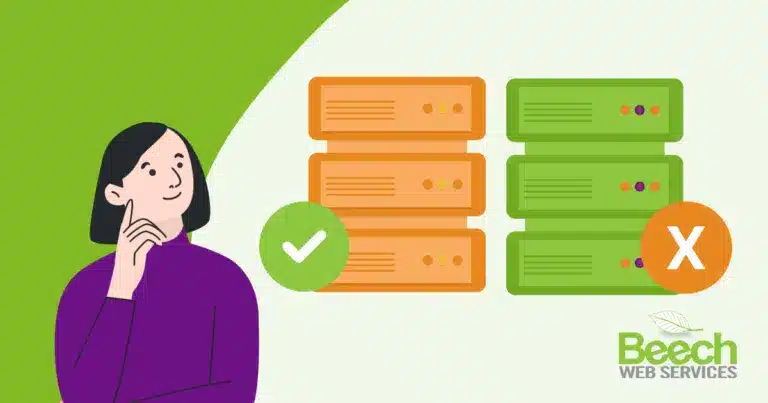
Like many things online, we can’t simply choose any hosting option and expect the best outcomes. Several factors must be considered when launching a website, or transferring an existing one, and selecting the right host could have an impact on our business in many ways.
A reliable website host should address a range of business requirements. This includes:
- Website size and leaving space for growth
- The experience of website visitors
- Page speed and performance
- Security and safeguarding against potential threats and improving compliance with UK GDPR
- Responsive and helpful customer technical support
- Sustainability and more carbon-conscious opportunities
- Stability and reliability
It’s important that we look for features in our website hosts that are tailored to our needs and our business plans. By choosing a host best suited to our objectives, we can provide our business a strong foundation for a successful online presence.
Understanding your hosting options

Depending on what a business may need from its website and online presence, there are different host options available that can cater to a specific list of requirements. A business selling vast numbers of products through an e-commerce platform is expected to have different requirements for their website hosting than a small business advertising their services online.
Not all businesses will need the same resources, level of support, and server size to make their website accessible and functional for their target audience. There are two popular types of websites hosting a business should consider: Shared Hosting and Dedicated Hosting.
Shared Hosting:
A shared web hosting service means that multiple websites from different businesses reside on one web server connected to the Internet. As the overall cost of server maintenance is spread over many customers, it’s often a more affordable option. By using shared hosting, a website will share a physical server and its resources with other the websites, which is ideal for smaller websites with moderate traffic.
Pros of Shared Hosting:
- Typically, a cheaper choice than other hosting options
- Ideal for small websites, with low functionality
- A great starter option for businesses with low resource requirements
Cons of Shared Hosting:
- Other websites hosted on the server can have a negative effect on the performance of your website, if they’re using more resources
- Slower page speed and performance
- Little room for business growth and expansion
- Less secure than dedicated hosting, if one of the sites on a shared server is hacked or breached, other websites on the same server may be affected
- Potential environmental impact, unless choosing a specifically green web host
Dedicated Hosting:
Unlike shared hosting, a dedicated server is like having a private venue for a website. These servers are solely dedicated to a website or websites of our choice, offering maximum control, security, and performance. For large businesses, or businesses experiencing growth, with high traffic websites and more resources, these servers are a great choice of website hosting.
Pros of Dedicated Hosting:
- Dedicated resources that are exclusive to a website or websites of our choice
- Increased performance and page speed
- Better user experience for website visitors
- Better performance will lead to better ranking in search engines
- Great for growing businesses who plan to expand their online spaces
- More security for websites handling sensitive user data
Cons of Dedicated Hosting:
- A larger investment than shared hosting
- Potential environmental impact, unless choosing a specifically green web host
Other choices of hosting provider are available which include:
- Virtual private servers (VPS)
- Cloud hosting
- Managed hosting
- Colocation hosting
How do I know if my business has the right hosting?
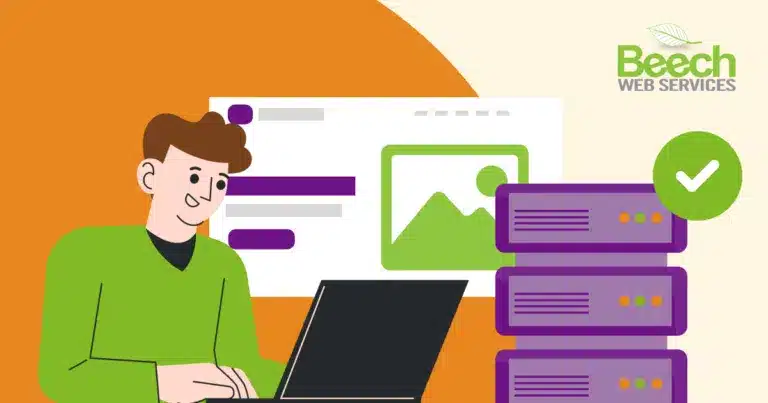
With so many hosting providers and options available, it can sometimes be unclear if the current service is the best fit for our website. As organisations change, whether that be the services on offer, the introduction of new products or an expansion within the business itself, the website should change and evolve too. Website’s may grow, introduce new features like e-commerce or booking systems, or even potentially downsize.
But what does this mean for a website’s hosting?
A website from a once small local business, now an e-commerce online store with more resources, would be expected to have different requirements to what it once did. The same could be said for a large business network closing stores and downsizing their marketing. To adhere to new expectations and requirements, our website hosting may need to be reviewed and changed.
Continue reading to find out the different factors we’d recommend considering when choosing a website hosting provider, and what it could mean for a business.
Finding a host that creates a positive user experience (UX)
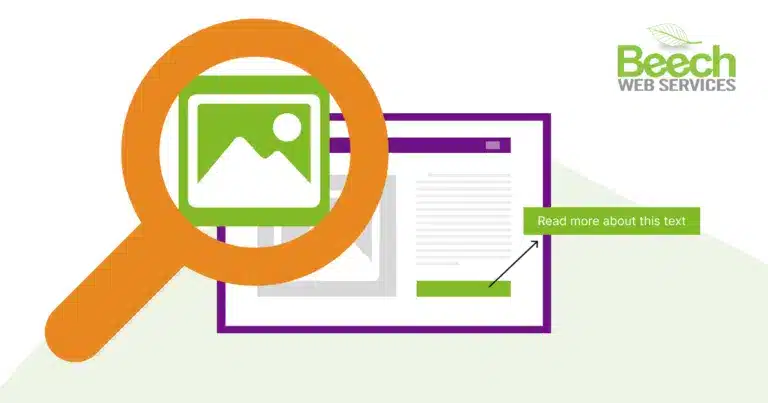
Various elements help to build a positive user experience. This could include page loading time, functionality, and the security of visitor’s data when browsing a website. Without a positive UX, visitors are less likely to want to do business with us. Using a statistic from Linearity, 88% of online consumers are less likely to return to a site after a bad experience, and 89% shop with a competitor following a poor user experience.
This means that when choosing a host for our website, the experience of our visitors should be a main priority. A reliable host with servers that allow for a fast experience, good functionality and strong security ensures your website can keep visitors engaged and happy. With reliable hosting, businesses can focus their efforts on building a UX that their audience will be happy with, hopefully encouraging positive reputational value and repeat custom.
How can website performance impact my business?
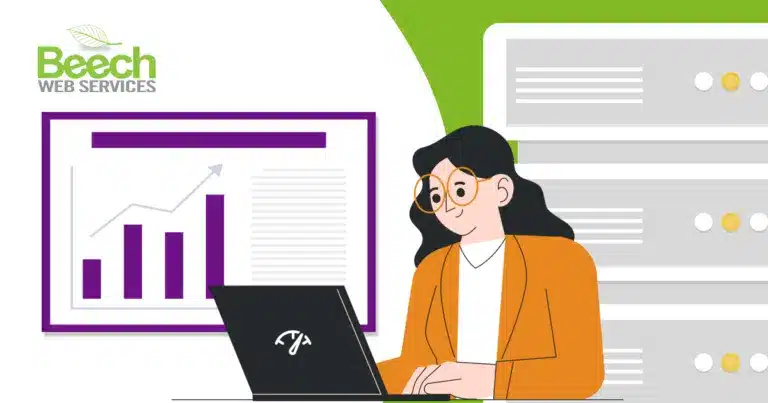
When we browse the internet, we’re not likely to sit around waiting for a page to load! It takes just 0.05 seconds for a visitor to decide whether they’ll continue browsing a website or leave, so it’s important the website has loaded well before then, so they can focus on our offering.
For businesses, a slow website could contribute negatively to a visitor’s user experience when browsing their website. With a negative experience, it becomes likely that website’s will see a higher bounce rate (which is a calculation of how many visitors access a website, but leave immediately or very quickly), and unlikely that our target audience will convert to a valuable customer for us. For this reason, performance and page speed have become crucial elements for businesses to consider when choosing who will host their website.
It’s also worth noting that, according to Cloudflare, page speed is also an important ranking to Google, as they tend to prioritise websites that deliver relevant information as quickly as possible. This means that when considering a website host, choosing one with enough resources to handle our website traffic and support its functionality is even more important.
If you’d like to see how well your website performs in Google’s eyes, copy and paste your website URL into the bar on Page Speed Insights and click ‘Analyze’: https://pagespeed.web.dev/
The importance of reliable technical support

Things go wrong sometimes, and even the best websites can fall victim to technical troubles. But, when our website goes down, so does our opportunity for creating conversions or selling products, meaning a potential loss of business.
A website hosting provider with knowledgeable, responsive and reliable technical support can help to mitigate these risks and allow us to troubleshoot issues quickly, making sure our website is back online and visible to visitors in no time. A good website host should also take regular backups of any website to ensure seamless restoration in the event of any major errors.
The inclusion of website management and security
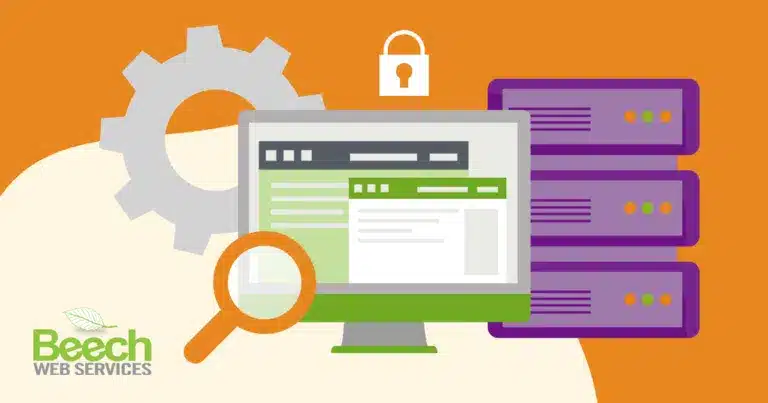
Security is a must-have for anyone operating a website. We want the assurance for ourselves and our website visitors and customers that we are protected when browsing through a website. As more threats arise every day from hackers and malicious users, having up to date security features and protections on a website is a necessity.
A business with an unsecured website puts all its visitors at risk, which could lead to a serious loss of revenue and damage to a reputation. Not only this, but security is a top priority to Google, and it is taken into consideration when ranking a website in their search results and also contributes to UK GDPR compliance.
When choosing a host for any website, security is a paramount concern. A host should offer effective security features like firewalls and malware protection to safeguard our website and customer data. Most hosting provides include an SSL certificate to ensure our website is served to the visitor on a secure connection. It’s also important for a website to be regularly backed up in case of data loss.
Sustainable hosting: The best choice for a sustainability-conscious website owner
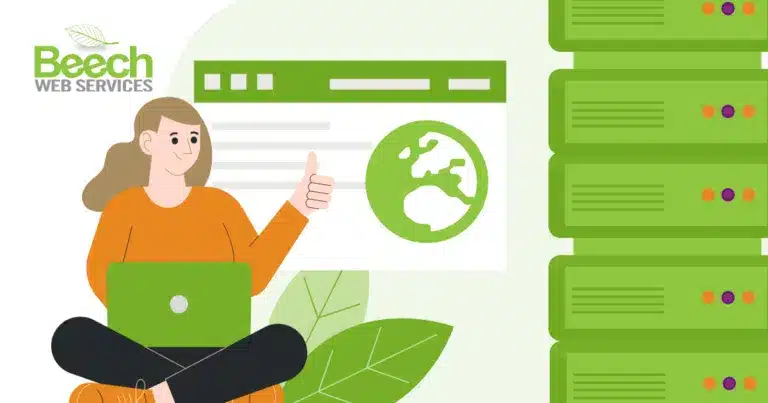
Sustainability is becoming a growing priority for many businesses who are now looking for ways to reduce their environmental impact online. This can be addressed with website hosting.
Choosing a green hosting provider that’s focused on using renewable energy sources to power their servers allows us to reduce our own website’s carbon footprint. The Green Web Foundation and Website Carbon websites offer free tools to help us find and check for more sustainable hosting options.
Sustainable values can encourage happy website visitors and customers. By utilising sustainably conscious hosting for our website we can remain consistent with our core values and resonate with environmentally minded audiences.
We can even promote this commitment to sustainability on our website to attract eco-friendly customers! (Get in touch with us if you’d like us to help you do this).
So, which hosting should my business choose?

With so much to consider, it’s important to know which hosting is the best option for our business to succeed online. The hosting solution we choose should depend on our specific needs, and what our website needs to be able to accomplish with our audience. Here are some general tips to help:
Shared Hosting on a virtual server: This the option to go for when running a small business or blog website with moderate traffic.
Dedicated Hosting: A perfect solution for large and growing businesses with high-traffic websites or those requiring maximum security and control.
Of course, every business is unique, and so are their goals and requirements for their website. Remember, choosing the right web host is an investment in your website’s success.
A great way to understand where your website is, and whether your current hosting is enough is by requesting a free website healthcheck.
Our 21-point website looks at the entire picture and covers hosting and carbon use. Click here to request yours now.
